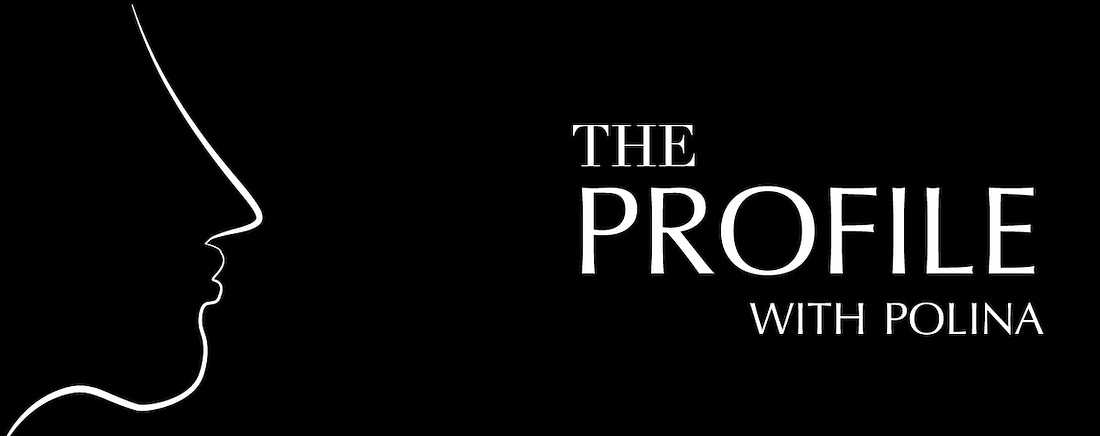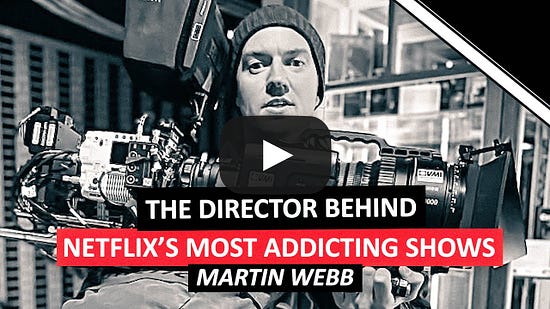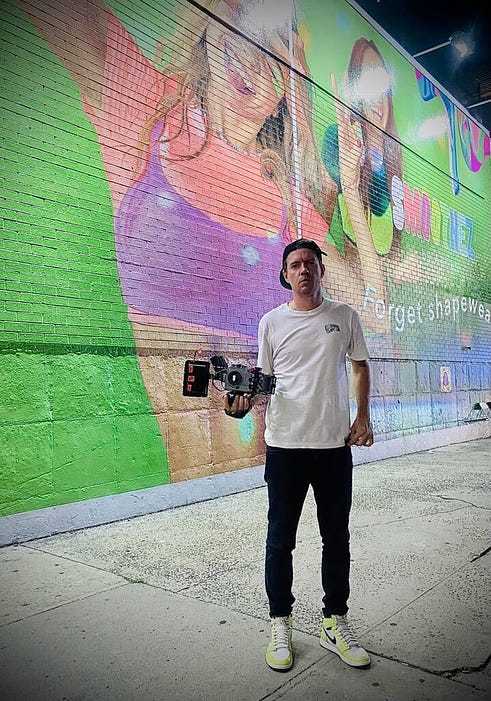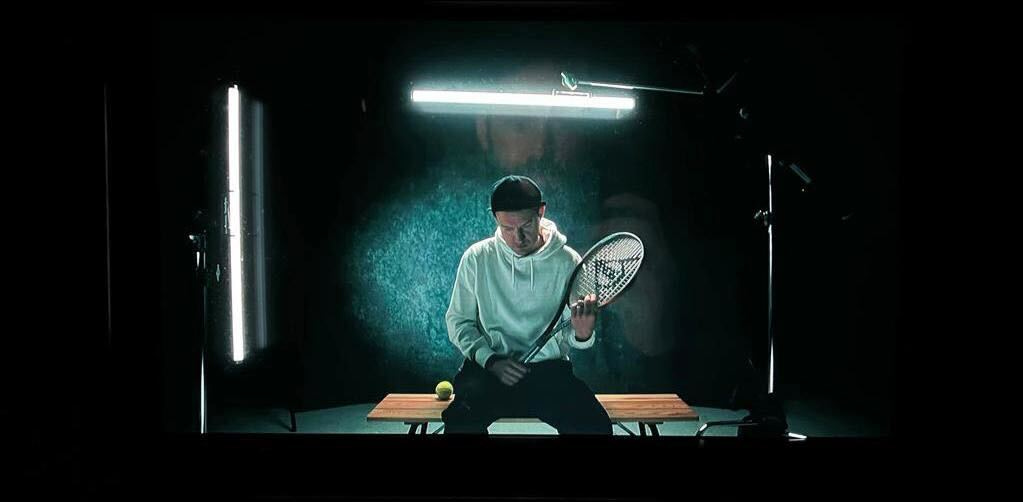Exclusive: ‘Formula 1: Drive to Survive’ Director Martin Webb on His Creative Process, Interview Techniques, and t…
Exclusive: ‘Formula 1: Drive to Survive’ Director Martin Webb on His Creative Process, Interview Techniques, and the Importance of Compelling StorytellingIn his first in-depth interview, the filmmaker explains how he captures life’s illuminating moments.
A note from Polina: I’m excited to share this interview with filmmaker Martin Webb, who’s directed some of the most popular docu-series out today. He was interviewed by Simran Bhatia, a staff writer for The Profile. I hope you enjoy it. Formula 1: Drive to Survive. Break Point. Life and Death Row: Execution. Martin Webb is behind some of the most captivating docu-series, but you’ve probably never heard his name. In his first in-depth interview, Webb breaks down the art of building intimacy with his subjects, taking on difficult projects, and telling captivating human stories through film. Webb grew up in Barking, a town in East London he describes as the “Detroit of the U.K.” Amidst the blue collar jobs in rundown factories, a 15- year- old Webb was discovering a passion for filmmaking, while his dreams to become a pro footballer were fizzling. He recalls a match where his team lost 10-1 to a rival semi-pro club. “The sound of the ball was different when they kicked it,” Webb says. He remembers that loss as a pivotal event that led him to turn his attention to a different passion that didn’t require him to rely on his athletic abilities. It was at this age that “media studies” joined the national curriculum, and Webb got to play around with cameras and film. Although he wishes he studied something other than filmmaking in university, Webb doesn’t regret it. And when he saw a documentary film for the first time, he saw that real life could be just as dramatic and more relatable. Webb got his start doing odd jobs in craft service and the camera department for sets, gradually making his way to directing award-winning documentary films. His advice for people interested in filmmaking? Reach out to people, be curious, and don’t wait. The hustle is real, but if you put in the work, Webb thinks it’s more than likely you’ll succeed. Martin Webb’s hard work has certainly paid off, as he directed the first four seasons of Netflix’s top grossing “Formula 1 – Drive to Survive” series, and the latest two seasons of Netflix’s “Break Point,” following world tennis champions and rookies across the globe. Webb has also started his own production house called 842 Films, named after the numbers which appear to him during life’s significant moments. Webb is most interested in shining a spotlight on sports he’s dubbed “the sleeping giants,” adding that a pickleball documentary may be in his future. (The Profile recently featured an interview with world pickleball champion Simone Jardim, which you can read here.) In this exclusive interview, Webb clearly describes his role as a documentarian. He’s not there to “create a story, but rather “illuminate the story that is already there.” Webb loves the challenge of developing genuine trust with his subjects, which range from refugees, to death row inmates, to world class athletes. One of his favorite subjects was Christian Horner, team principal of Red Bull Racing, the first person in the paddock who gave Webb’s crew access to their team garage. And when it comes to chasing success, Webb would rather pursue significance. Just make sure the camera is rolling along the way. This Q&A has been lightly edited for clarity and length. (Below is an excerpt of the interview, but I encourage you to listen and watch to the full interview below.) 🎧 LISTEN.
🎬 WATCH.What do you do to build trust with your subjects?WEBB: Without trust, there’s no intimacy. With no intimacy, you’re not really telling the story of who people really are. If we’re not doing that, we might as well go. Trust is the key currency for documentary filmmakers. They’ll all say something similar. It’s a process. Sometimes it’s a daily, an hourly process of conversation, of explaining what this is and why it’s important that you’re there. It’s a sliding scale, some people are all-in straight away. Other people give you a little bit, and then another little bit, and then two years later all of a sudden you’re at their wedding. You can’t betray that trust. If you let them down, if it’s not what they thought, they’ll probably never come back. Formula 1 was interesting. When Season 1 first came out, no one would talk to us. When we walked back into the paddock for Season 2, everybody in the show was like, ‘What the hell is this?’ [Drivers and team principals] weren’t aware of how they looked, while the rest of the world loved it. Gradually they were like, ‘Okay, we get this now.’ More and more people soon came on board. … listen on to hear about Webb’s personal relationship with his favorite Formula One personality, Christian Horner, and the special moment they shared at the controversial Grand Prix finish in 2021. You’ve made films about athletes, refugees, death row inmates, a 14-year-old who shot his parents in the head. What have you learned about the human experience from their stories?Bloody hell, that’s a big question. I think I admire people who go through adversity, and their capacity to overcome and keep going. I’m making a film about a refugee who escapes the civil wars of West Africa in the early nineties, gets stuck in a refugee camp for 15 years, receives resettlement in America, and when that doesn’t work out, he goes back to his nation and rebuilds it brick by brick. His capacity for forgiveness and his ability to move on from that trauma and do something good is amazing. For me, you’re not learning one thing, you’re learning something different from all of these human experiences. They challenge what you think you already know… they challenge what you think you’re doing. …listen on to hear more about what compels Webb to make the films he does and the transcendent moments he’s witnessed along the way. What practical pieces of advice would you give to someone who is trying to get into filmmaking or documentaries?Don’t be scared to reach out. You can find a lot of contact details online for people you want to find. Most people are willing to have a Zoom call or a chat. I think when you first come out of university, you have this idealism on what the job is going to be and how you’re going to get there. It’s probably not true. Talk to practicing professionals to understand more. They will give you their time. Do it when you’re young. There’s a timing thing in this industry. You don’t want to start too late. It’s going to be a hustle. It’s going to be hard early on. And it should be. You don’t want to be having that hustle when you have kids, mortgages, and sick parents. Those are going to be the things that take you away from it. And be active. There’s so much technology these days that you can make something on your phone. It is democratized now, and I’ve benefitted massively from technology. Be curious about the world around you. I think [filmmaking] is mostly an expression of curiosity, at least for me. …listen on to hear more about Webb’s odd jobs in his early life which served as the building blocks for his career. … For more like this, make sure to sign up for The Profile here:
Read The Profile in the app
Listen to posts, join subscriber chats, and never miss an update from Simran Bhatia.
© 2023 The Profile |





